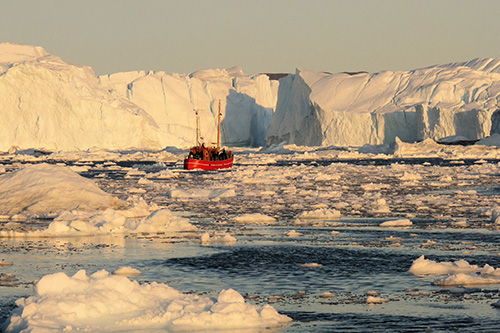
A photo of the Arctic Professor Jonathan Bamber
University researchers have helped secure £13million for an Arctic research project that will track the rapidly changing fortunes of the frozen north.
The Arctic is on the frontline of global climate change, warming at twice the speed of the rest of the world. Last year alone saw record summer temperatures in Siberia, wildfires rage across sensitive northern tundra and Arctic sea ice shrunk to its smallest ever extent.
Now Professor Jonathan Bamber from the University of Bristol has helped secure a €15million (£13m) grant for a global project that will comprehensively track how the Arctic is changing.
From July 1, the Arctic PASSION will develop new ways to gather real-time data about the frozen ocean and its surrounds.
Professor Bamber, who had an Antarctic glacier named after him in 2020, said: "In many ways the Arctic is the canary in the mine, showing us how climate change could affect the rest of the world in the coming years.
"This project will track everything from short-term extreme events such as storms to long-term change over decades. We hope to build up the most complete picture of the Arctic ever gathered."
Funding for Arctic PASSION comes from the EU's H2020 Framework Programme and is being coordinated by the Alfred Wegener Institute in Germany.
The project is the second exciting funding update to come from the University of Bristol's world-leading School of Geographical Sciences.
Earlier this year Professor Bamber, along with Dr Jack Landy, Dr Dann Mitchell and Dr Peter Watson helped secure £2.2million from UKRI NERC for a project called Arctic-Connect.
Led by the University of Exeter, Arctic-Connect brings together experts in climate dynamics, polar and sub-polar oceanography and extreme weather to transform our understanding of how Arctic warming affects the rest of the world.
Dr Mitchell is leading on how the Arctic influences extreme weather over Europe.
He said: "The project is about how changes in the Arctic can have far reaching connections to other parts of the northern hemisphere. At Bristol we are looking at how Arctic climate change alters atmospheric circulation and, in turn, changes extreme weather over Europe.."
Professor Bamber added: "Both projects reinforce the University's position as a centre of excellence in Arctic environmental change, modelling and observations."






